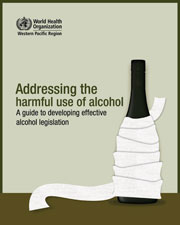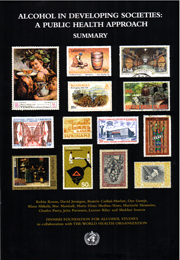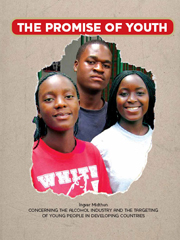
“We have enough evidence to act. Now!”
A historic moment! A significant success! Great words were used at the closing of the Global Alcohol Policy Conference in Bangkok 15 February, - and for good reasons. The conference had everything in terms of technical contents, commitment from participants as well as excellent conference facilities and local staff.
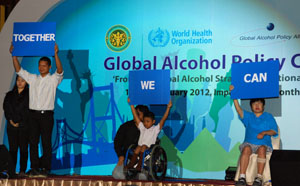
Already in the opening session of the conference, the role of civil society was emphasized. In his opening remarks, Dr. Anarfi Asamoa-Baah, Deputy Director-General of the World Health Organization (WHO), called for backing from champions to make things happen: “Do not underestimate the opposition. The alcohol industry is rich and powerful. Commercial interests clash with the most effective measures for reducing harmful drinking. Resistance will come, often from well-financed lobbying groups and resistance will need to be overcome. It is gratifying to see such a strong presence of civil society organizations taking part in this conference. Your voices will be critical in overcoming this resistance and persuading governments to take a strong and decisive stand.”
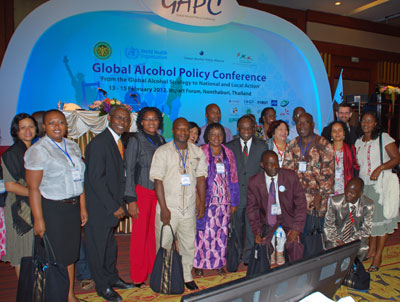
Dr. Ruengareerat furthermore said that such a partnership may make a great difference in terms of better alcohol policies and improved health and welfare in many countries. This partnership approach was confirmed by Dr. Shekhar Saxena, Director for the Department for Mental Health and Substance Abuse at WHO in his closing remarks: “At this conference we have witnessed that the various stakeholders present here are at the same page. WHO needs you, the NGOs, as partners in action. WHO can do some, but together with you we can manage much more”.
The closing session also saw the presentation of the conference declaration and the conclusions from the rapporteurs.
The title «From the Global Alcohol Strategy to National and Local Action”, underlined that the conference was an important step in the process of implementing the WHO Global strategy to reduce the harmful use of alcohol, adopted by the World Health Assembly in 2010. Co-hosts of the conference were WHO, The Thai ministry of Public Health, ThaiHealth and the Global Alcohol Policy Alliance (GAPA). FORUT and IOGT International were among the 13 co-sponsors of the conference.
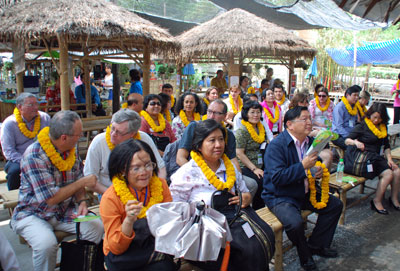
Both plenary speakers and workshop presenters at the conference came repeatedly back to the need for choosing the “best buys” in prevention of alcohol-related harm. This was then reflected in the summary by the conference rapporteurs: Governments and advocacy groups should give priority to interventions that regulate alcohol prices, physical availability and alcohol marketing.
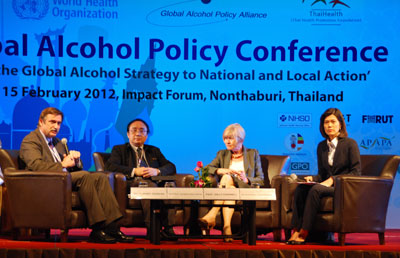
The summary by the rapporteurs also stressed that there is now a broad international evidence base, both on the volume of alcohol-related harm and on which interventions that prove to be effective. “We have enough evidence to act. Now! This conference is a call for action at all levels”, concluded the rapporteurs. Their report contained points like:
- The need to develop coalitions with other health agencies.
- The need for strong political leadership. Dr. Vladimir Poznyak from the WHO, in his closing remarks, pointed in particular at countries with rising levels of alcohol consumption and weak policy frameworks.
- To make private harms, like domestic violence, into public issues and concerns.
- To break the link between masculinity and drinking and to challenge men to become a part of the solution.
- To question Western norms of alcohol use.
- To guard public health policies from negative influence from international trade agreements.
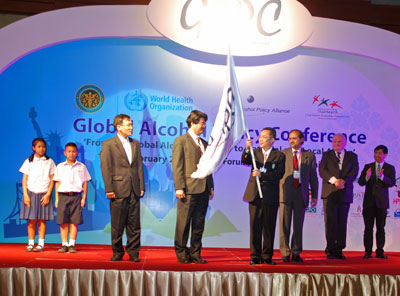
The Bangkok conference was rounded up by handing over the GÀPC flag from this year’s organizers to the hosts of the next conference, South Korea. They will hold the next Global Alcohol Policy Conference in Seoul 7-9 October 2013.
For more information:
Here is the web site of the Global Alcohol Policy Conference 2012. We expect material from the conference to be posted at this site within short.
![]()
![]()
Developed with CustomPublish CMS by Nettinfo AS

